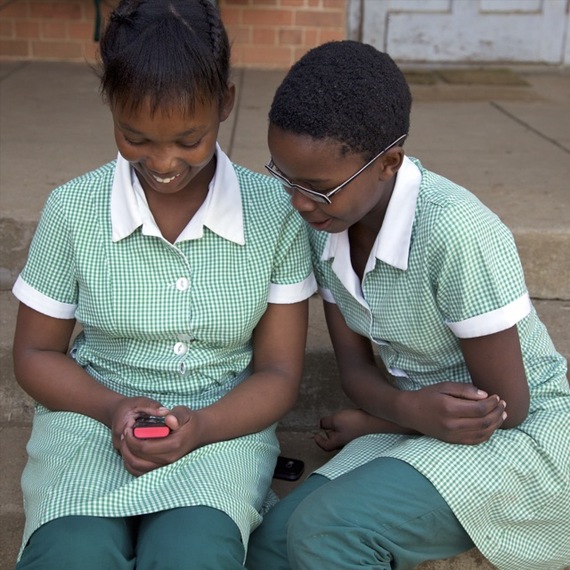Is there a difference between disruption and transformation?
Between shaking up a business sector (I'd say "business model," but that is proving to be less and less true) and transforming society?
Between monetizing fabulous enablement and actually changing people's lives for the good?
For example, we talk about Uber disrupting the "get a taxi" model, but I have yet to hear that Uber has transformed society. Au contraire, if you follow the exploits of some of their drivers....
On the other hand, I'd argue that Amazon did transform something, and that was the focus on stickiness that was killed by one-click shopping, while Google transformed the linear website experience with the ability to get right to the place you wanted.
But I'd continue my argument by saying that neither has transformed society. Certainly not like Gutenberg transformed the world by making information accessible to all. Since then all has been evolutionary.
Somehow we forget that technology is a mere enabler, and since fire and the wheel were discovered, invented and uncovered, technology has played its role as human need drove innovation.
Reed Hastings, of Netflix fame, said it best:
In fact, technology has been the story of human progress from as long back as we know. In 100 years people will look back on now and say, 'That was the Internet Age.' And computers will be seen as a mere ingredient to the Internet Age.
It is no surprise, then, that as our focus, in the developing world, is not on transformation but on disruption, if you will, the 10 largest VC-backed financing deals in mobile in the United States were around car sharing, content sharing, security management and mobile phone recycling.
All great deals for the investors, all great products and services for those like me who use them, but Snapchat, Uber or Flipboard, to name a few, will not help transform developing countries or begin to solve society's problems.
Let me be clear: This is not a diatribe, as I said I use and love those and more (maybe not Snapchat); it is merely an observation after the time I spent in South Africa last week.
The issue is really that we have become enamored with what we consider to be technology (I refer you back to Reed Hastings) and really isn't -- and clearly enamored with crazy valuations and money to be made.
Add to that our digibabble predilections and frankly I think we are missing some amazing opportunities to actually transform the world and do some good, not to mention make money.
I refer of course to mobile -- now that "digital first" has morphed into "mobile first."
We are jaded. We think everyone in the world has a tablet or a smartphone. Worse, even though there are way more Androids out there than iPhones or iPads, the cool factor promoted by the people who create the images we see makes it look the other way around.
Actually, the top three mobile phone vendors, shipments and market share in 2013, according to IDC, shows Samsung first, then Nokia, and Apple at number three.
And there you have it: Apple wrongly seems to dominate, when in truth feature phones -- plain old vanilla, semi-literate handsets -- make up 45 percent of the world market, as so many inhabitants of developing countries -- who don't have access to reliable power sources, let alone WiFi, and who want clean water, access to better pricing at markets, and secure means of transferring and storing their wages -- can only wonder what Candy Crush and Fruit Ninja are all about.
And while financial services are high on everyone's list in the developed world, we want secure ease of use, not life transformation.
We struggle with e-wallet applications and complain about the digital services our banks offer, yet in parts of the world mobile money penetration far outstrips bank accounts -- a disruption in our world but a transformation in theirs, as bank accounts were irrelevant and not equipped to cope with the kind of security and mini-payments that would really change lives.
And the implications are vast and important and, by the way, hugely profitable for all providers of goods and services -- including the Cokes and P&Gs of the world -- and that is a good thing, with transformational possibilities as well.
Bottom line: If you are serious about innovation, if you really want to make a difference and money, if you want to transform and not just disrupt, study what is happening in Africa and other developing countries and see if you can apply some of that learning and energy and sheer innovation to the rest of us.
My fear is that we too often forget that while digital is everything, not everything is digital, and that as we become more and more enamored with what we think is technology, we are sliding backwards socially and losing sight of what is really important. Listen to Aldous Huxley:
"Technological progress has merely provided us with more efficient means for going backwards."
And I am terrified as I watch ISIS and others embrace the wrong kind of progress.
So when I hear "digital first" or "mobile first," I yell at the top of my lungs, "People first!"
Thank you, Africa, for reminding me.
What do you think?

